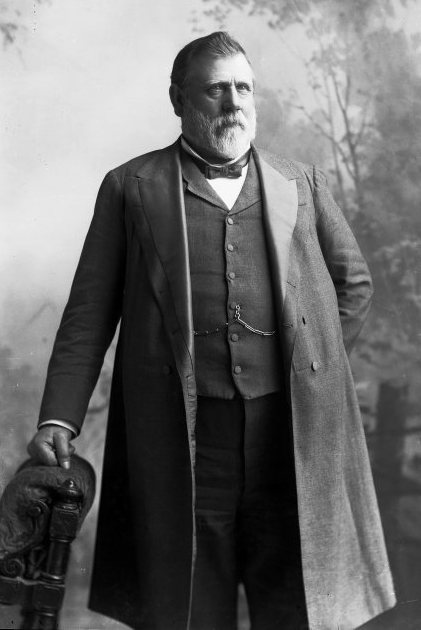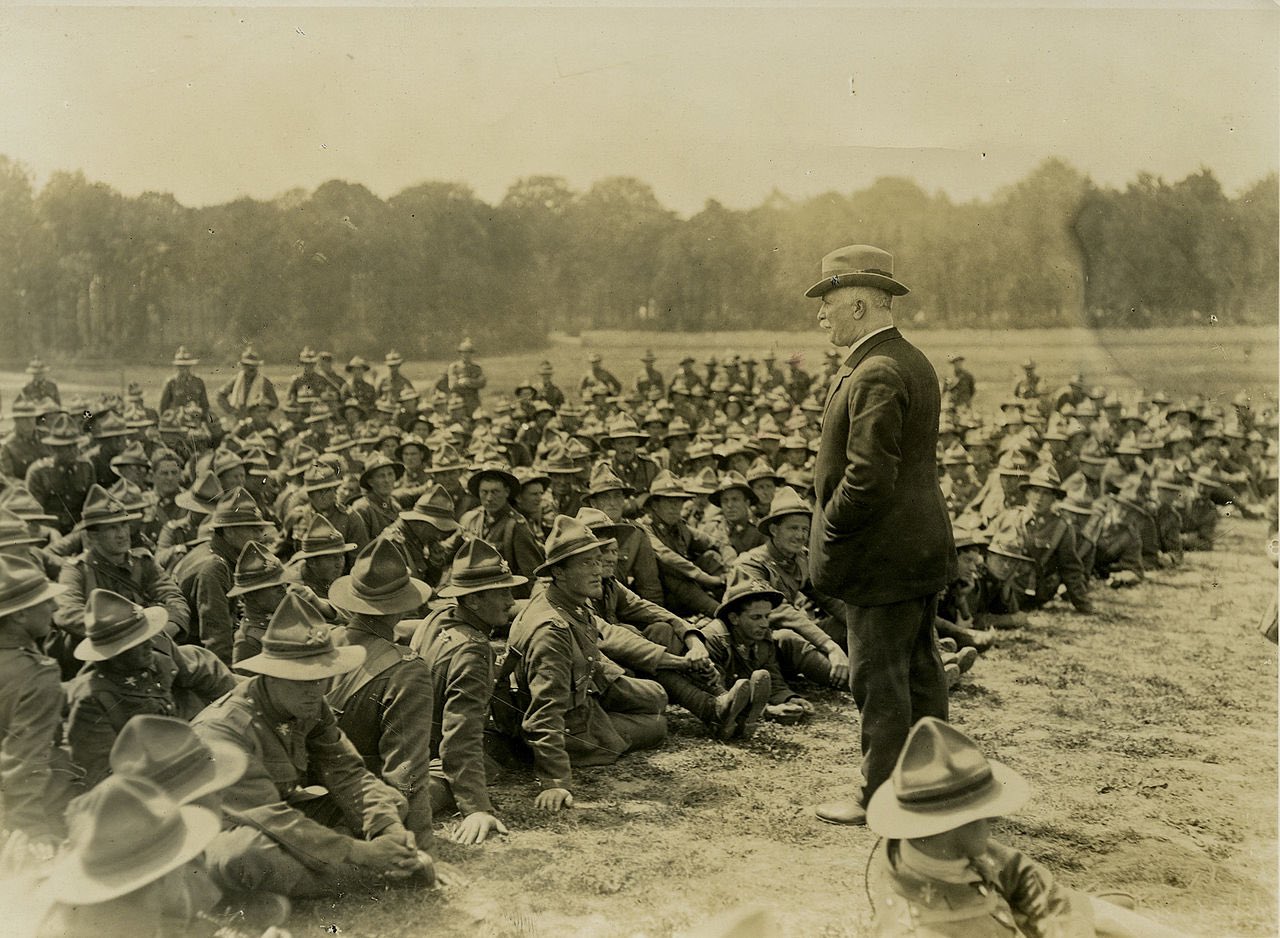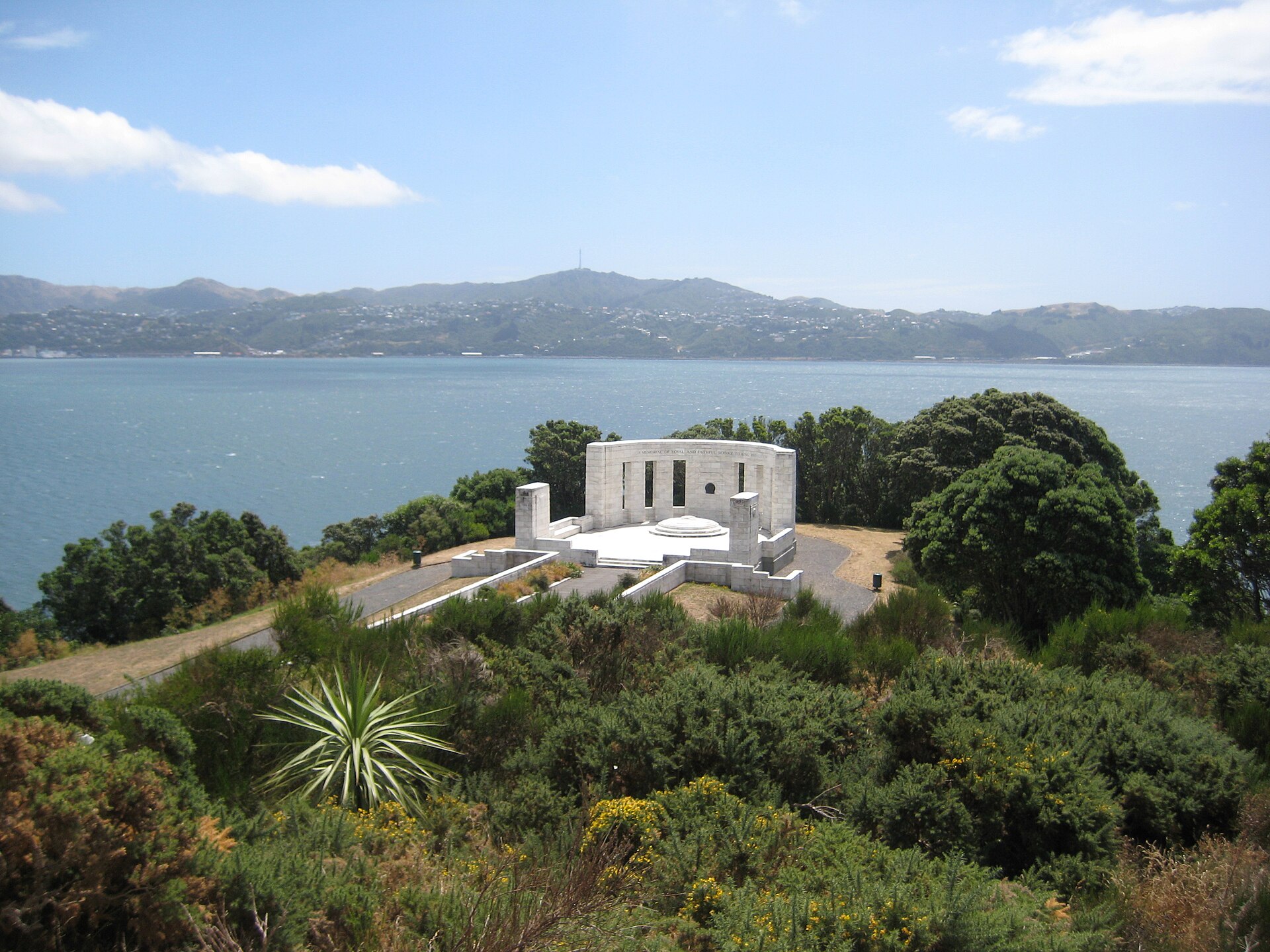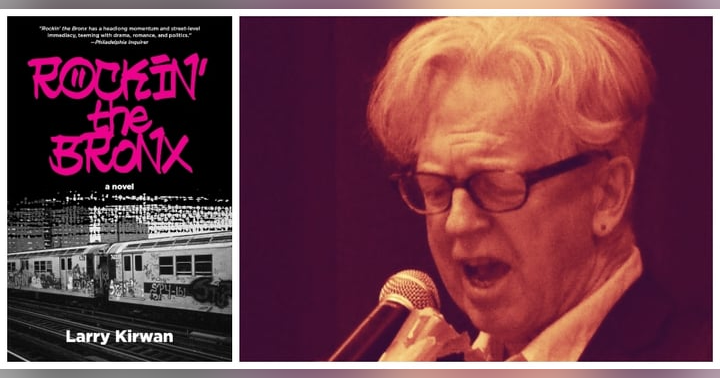William Ferguson Massey - NZ Prime Minister (1856 - 1925)

William Ferguson Massey, the 13th prime minister of New Zealand was born near Limavady, Derry, to a tenant farming Protestant family on March 26th, 1856.
Have you listened to our podcast? Get the latest on our Episode Page.
In 1862, Massey’s parents emigrated to New Zealand leaving their 6 year old child behind to complete his education He was raised by his grandmother and uncle and at age 14 followed his parents in 1870 to Auckland.
By 1876 Massey settled in Mangere on the outskirts of Auckland where he leased a 100 acre farm and bought a threshing machine to provide supplemental income. He married Christina Allen Paul (1863 - 1932), a daughter of Scottish immigrants. Together they had seven children, two of whom would server in parliament.
Massey was an active participant in local civic life which led to his election to parliament in 1894. He joined the independent conservatives who opposed the dominant Liberal Party whose progressive leader, Richard Seddon dominated politics at the close of the 19th century.
The sudden death of Seddon in 1906 and subsequent internal dissension within the Liberal Party affordded a political opportunity for Massey and his creation of the Reform Party in 1909.

In 1912, Massey, as leader of the Reform Party, became prime minister following a no confidence vote on the Liberal Party government. Massey served as Prime Minister for almost 13 years, the 2nd longest tenure in New Zealand history. His initial years in power were challenged by labor unrest against which he reacted aggressively, a focus that would be a hallmark of his leadership.
With advent of WWI, both major political parties were supportive of Britain and a coalition was formed with the Liberal Party for the duration of the conflict. Massey traveled frequently to support the Allied cause and visited New Zealand troops in the field.

Despite Massey's Irish background and pro British Imperialism stance, he was careful to avoid being drawn into the controversy arising from the 1916 Rising and subsequent Irish War of Independence.
Massey gained a parliamentary majority following #WWI. His leadership continued to reflect concerns over militant labor inflamed by the Red Scare. Ugly sectarianism and a restriction on Asian immigration did little to enhance New Zealand’s reputation at the time.
Economic difficulties forced Massey into a coalition government again in 1922 as the new Labour Party began to gain power. Massey was diagnosed with cancer in 1924 and as his health deteriorated he was forced to relinquish control.
Massey succumbed to his illness in 1925 and is buried along with his wife Christina in the Massey Memorial which overlooks Wellington harbor.

















